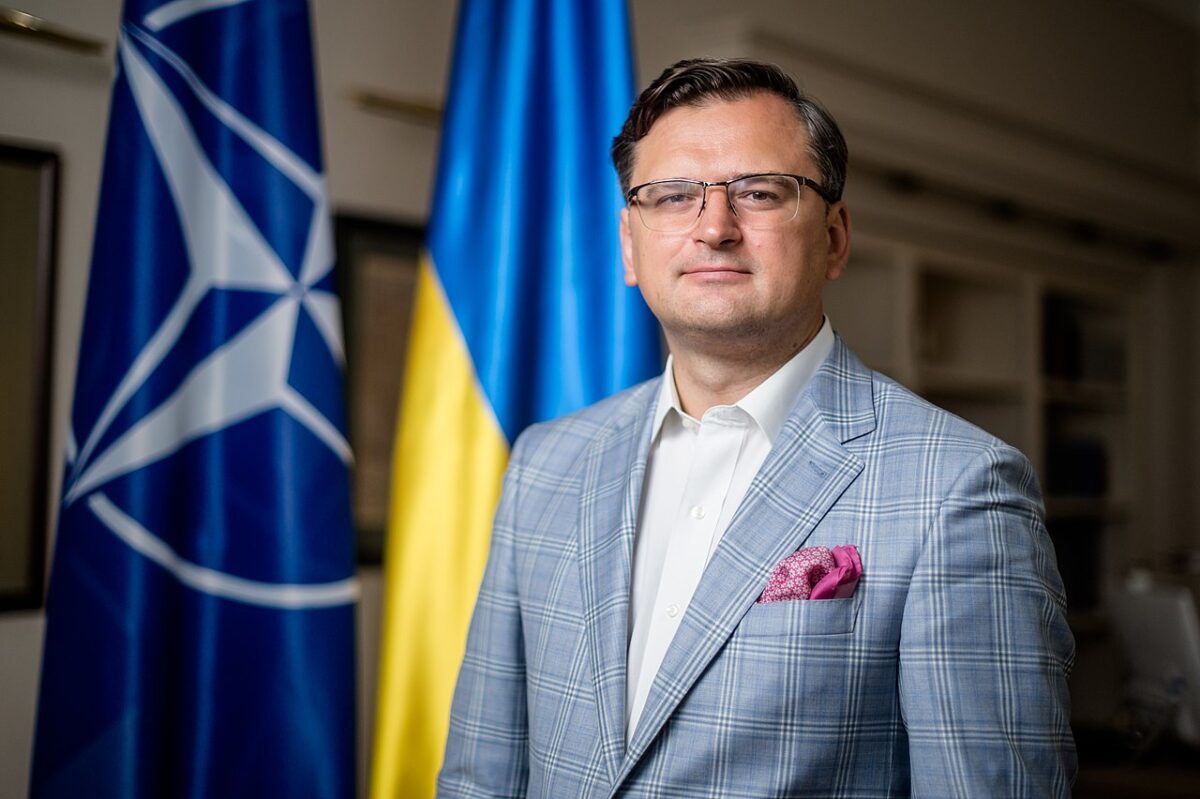The undercurrents of Ukraine’s current border tensions with Russia are lapping ominously on Israel’s shores.
With about 130,000 Russian troops and armor massed along Ukraine’s frontier, fears are growing that Russia may invade Ukraine. Russia denies the accusation, but the United States and its allies are skeptical and believe an invasion could be imminent.
Russian President Vladimir Putin and his lieutenants claim that Russia’s security has been compromised by NATO’s expansion eastward into Eastern Europe since the dissolution of the Soviet Union in 1991.
The Russians demand a guarantee from the West that Ukraine — formerly a Soviet republic that Putin deems to be an historic part of Russia — will never join the Western military alliance.
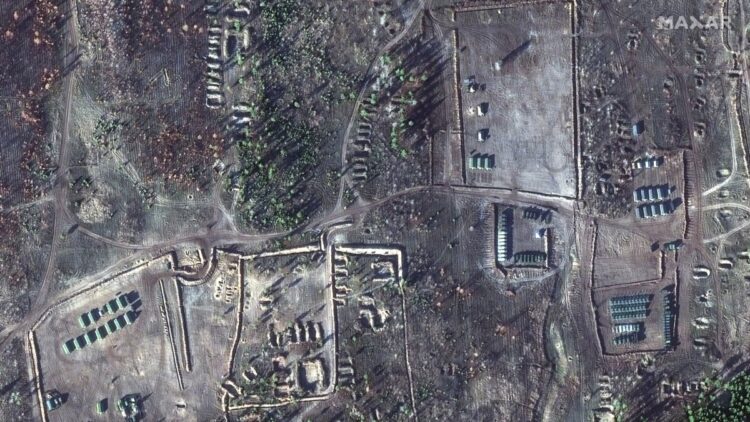
Last summer, Putin said that Ukrainians and Russians are the same people and should unite, like Jews from different countries who immigrate to Israel.
The two sides are currently at odds over this emotive issue, stirring apprehension that Europe could be engulfed by a war as early as this month.
The diplomatic impasse has rattled Israel, which has cordial bilateral relations with Russia and Ukraine, both of which have sizeable Jewish communities. In the past three decades, some 500,000 Ukrainian Jews and more than 400,000 Russian Jews have settled in Israel.
At least two of Israel’s regional neighbors support Russia’s demands. Syria and Iran, two of Russia’s closest allies in the Middle East, are unreservedly pro-Russian.
Turkey, which condemned Russia’s annexation of Crimea in 2014 and has sold attack drones to Ukraine, reportedly supports Ukraine’s desire to join NATO.
By contrast, Israel has treaded carefully, trying to antagonize neither Ukraine nor especially Russia.
Eight years ago, following Russia’s invasion of Crimea, Israeli diplomats at the United Nations walked out of the General Assembly to avoid having to vote on a resolution condemning Russia.
And at Russia’s request, Israel has cancelled arms deals with Ukraine and Georgia, which was invaded by Russia in 2008.
The Israeli government has offered to be a mediator in the standoff between Russia and Ukraine, but Putin has apparently declined. It is unclear how Vlodomyr Zelensky, Ukraine’s first Jewish president, has responded. But recently, Ukrainian Foreign Minister Dmytro Kuleba invited Israel to play a mediation role, as has U.S. Secretary of State Antony Blinken.
Israel’s sensitivity to Russian interests is dictated by the hard realities of realpolitik: Israel has much more at stake in its relationship with Russia than with Ukraine. Compared to Ukraine, Russia — the successor state of the Soviet Union — is a superpower and a major player in the Middle East.
Russia has very close relations with Syria, which has fought several wars with Israel and has been enmeshed in a civil war for the past decade.
In 2015, Russia significantly expanded its military footprint in Syria to save President Bashar al-Assad’s Baathist regime from defeat on the battlefield. If not for Russia’s assistance, Syria would not have been able to recapture land it lost in the initial phase of the civil war.
Russia is not Syria’s only ally on the ground. Iran and Hezbollah, two of Israel’s most formidable enemies, have worked with Russia to pummel Syrian rebels opposed to Assad’s rule.
In the process, Iran has entrenched itself militarily in Syria, particularly on the Syrian side of the Golan Heights. Hezbollah has used Syrian territory as a land route from which to transport Iranian weapons to its base in Lebanon.
The Israeli Air Force has launched hundreds of raids against Iranian bases in Syria and attacked Hezbollah convoys heading toward Lebanon.
Despite its alliance with Syria, Russia has generally stayed aloof from Israel’s shadow war with Iran and Hezbollah, both of which have called for the destruction of Israel. Russia understands that Iran’s presence in Syria is provocative, causing instability and posing a clear and present threat to Israel’s security.
Shortly after Russia reinforced its garrison in Syria, Israel and Russia signed a deconfliction agreement to forestall the possibility of accidental clashes between Israeli and Russian aircraft. In general, this arrangement has worked to Israel’s advantage, giving it air superiority over the skies of Syria.
Israel’s former prime minister, Benjamin Netanyahu, was instrumental in establishing this arrangement, having conferred with Putin in Moscow no less than nine times to shore it up. His successor, Naftali Bennett, has adopted an identical policy.
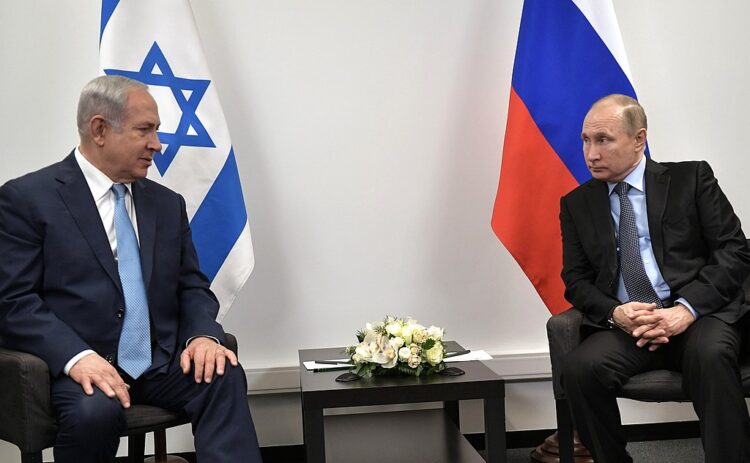
On January 24, as tensions between Russia and Ukraine escalated, the Ministry of Defence in Russia made an important announcement, stating that Russian and Syrian aircraft had carried out a joint patrol along Syria’s border with Israel. The Russians added that joint patrols would be a regular occurrence in the future.
The news threw Israel’s deconfliction accord with Russia into doubt and triggered speculation that Israel would have to curtail its air campaign in Syria.
According to reports, Israeli military officials contacted their Russian counterparts to clarify the situation. A week later, Israeli jets struck a Hezbollah base near Damascus, with no Russian response.
Last week, as Russia’s conflict with Ukraine escalated, Kuleba told an Israeli reporter he was seeking greater cooperation with Israel. “We are interested in deepening cooperation on defence technology, in particular to air defence,” he said in an apparent reference to Israel’s Iron Dome anti-missile defence system.
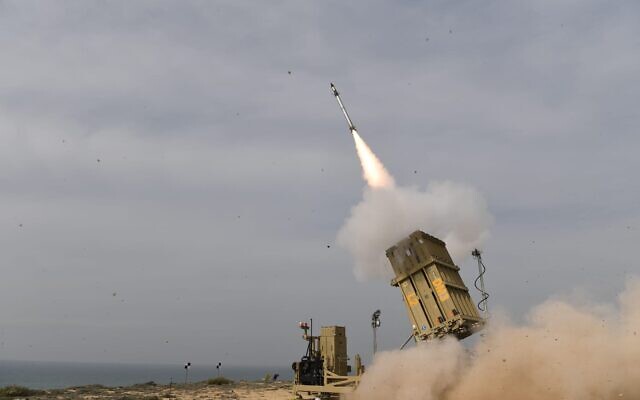
Early in February, Israeli Foreign Minister Yair Lapid expressed doubt that Russia would go to war with Ukraine. “I don’t think a world war is about to start there,” he said, implicitly bolstering Russia’s claim that it has no aggressive intentions toward Ukraine.
He added that Israel will proceed with “caution” in its dealings with Russia and Ukraine.
Ukraine’s ambassador to Israel, Yevgen Korniychuk, was “deeply appalled” by Lapid’s remark. In a Facebook post, he chided Lapid, accusing him of failing to grasp the nature of Russian aggression against Ukraine, either now or in the past eight years in eastern Ukraine, where pro-Russian separatists have made territorial gains.
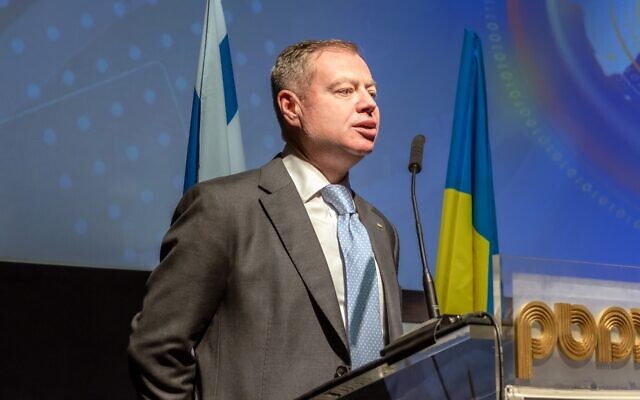
As he put it, “Unfortunately, (Lapid) reiterates rhetoric of Russian propaganda and ignores the disturbing messages from (Israel’s) strongest allies — USA, Britain and the European Union — regarding the high possibility of a fullscale Russian invasion into Ukraine in the coming weeks.”
By way of reaction, Israel’s Foreign Ministry summoned Korniychuk and reprimanded him.
With tensions still simmering along the Ukraine-Russian border, Israel has adopted a neutral position with respect to the current crisis. But it is debatable whether Israel’s policy will be tenable or sustainable should Russia invade Ukraine.
Certainly, the United States, Israel’s chief ally and benefactor, would expect Israel to fall into line with the West and express public support for Ukraine’s independence and sovereignty should Russian troops and tanks storm into Ukraine.
